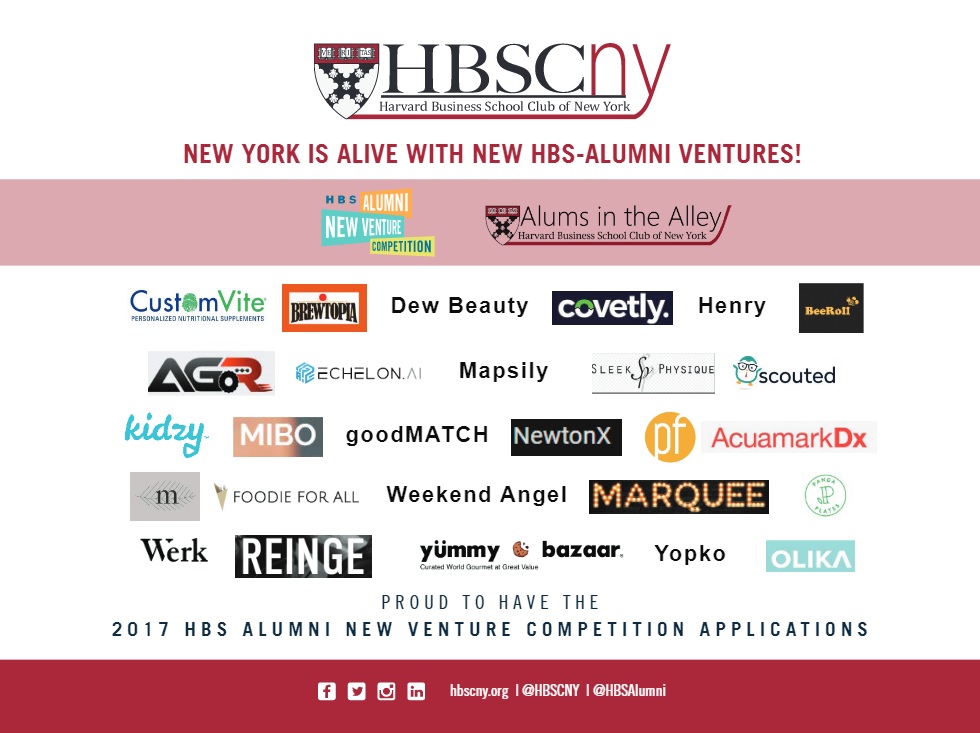
The last time you encountered something that your employer (or HBS) did that could obviously be better, what did you do? Probably complained to a friend, then moved on with your life. Sometimes the solution is simple and straightforward, but nobody seems to be listening, and even if you find someone to tell, are they really going to do anything about it? A good friend of mine, Tyler Hannasch (Stanford GSB ’18), has been obsessing over this problem, and I have recently been helping him with an app designed to help communities collect feedback from its members.
Perhaps the biggest reason we’re friends is our shared love of business, but especially how it pertains to software. We regularly chat about how the world should be different, how companies could address these opportunities, and approaches to start such a company. Yet despite a near-obsession with these things, only recently did we learn how to build the code to enable them.
Because of our focus on software, a year ago we concluded that we needed to learn how to write code. Our rationale ultimately came down to two reasons – to be able to make software prototypes, and to be more effective at managing developers. One realization that has stuck with me is – almost all the software founders I admire are technical (e.g. Gates, Musk, Zuckerberg).
 I initially tried learning on my own on using sites like CodeAcademy; however, getting started with coding has a lot of hurdles. What language should I learn? What is a development environment? Where do I even go to learn this stuff? With so many sticking points, it’s challenging to consistently spend free time going from one hurdle to the next without writing a line of code. I wanted to know enough to build something that felt ‘real’, and use that as motivation to learn more. Struggling to get there on my own, I quit my job early and attended a three-month coding bootcamp before coming to Harvard. While I have mixed feelings about the bootcamp, there’s no question I got what I wanted out of it – which was to achieve a positive feedback loop: where the problem solving of writing code is fun, providing the motivation to learn more, and which in turn makes writing code more satisfying.
I initially tried learning on my own on using sites like CodeAcademy; however, getting started with coding has a lot of hurdles. What language should I learn? What is a development environment? Where do I even go to learn this stuff? With so many sticking points, it’s challenging to consistently spend free time going from one hurdle to the next without writing a line of code. I wanted to know enough to build something that felt ‘real’, and use that as motivation to learn more. Struggling to get there on my own, I quit my job early and attended a three-month coding bootcamp before coming to Harvard. While I have mixed feelings about the bootcamp, there’s no question I got what I wanted out of it – which was to achieve a positive feedback loop: where the problem solving of writing code is fun, providing the motivation to learn more, and which in turn makes writing code more satisfying.
Then fall semester began. As I’m sure every RC would agree, the first semester is overwhelming, and in the flurry of classwork and social activities I hardly touched any code. ‘Luckily’, I got the flu over winter vacation and, for three weeks, all I could do was watch Game of Thrones and code, both of which I did (a lot). At the same time, Tyler had created an early version of the mobile app, tentatively called Collaborative Feedback, which he had just launched at the GSB. To help, I started learning about creating mobile apps, which luckily can be built using a very similar language to what I learned over the summer (React Native & React).
In just over a month, the app has already driven a variety of changes on the GSB campus, such as offering larger portion sizes in their cafeteria, replenishing the sand on the volleyball courts, and adding more textbooks for core courses to the library. This has created an ongoing dialogue with the administration, including the Head of Dining and the Head of Housing. And with students seeing the improvements, they’re also more willing to engage by submitting more feedback, proposing solutions, and upvoting other students’ feedback. Interestingly, the administrators who have been working with Tyler to understand the feedback have started to embrace it, and, in a brief conversation, the dean expressed interest using the app to get feedback about topics he feels he doesn’t get enough input on.
So what’s next? Being roughly a month in, a lot, and it’s hard to say exactly what. Since we’re both new to building mobile apps, there’s definitely a lot of work to be done on it, such as improving the design and adding features such as allowing anyone to recommend solutions to an issue. While we do that, Tyler has been working to broaden the list of administrators at GSB who are acting upon this feedback.
Finally, we’re working towards launching the app at HBS. The current co-presidents have been working on an initiative to make the Student Association more data-driven, and this could be a natural extension of those efforts. Both groups who were running for co-president were interested in using the app to help them to source suggestions for changes they can advocate as co-presidents.
I’m excited about Collaborative Feedback’s next steps here on HBS campus, and if you have any thoughts, please reach out to me at rnewton@mba2018.hbs.edu. I’m all about feedback.
Ryan Newton (HBS ’18) is an RC from Section G. Prior to HBS, Ryan completed a three-month coding bootcamp at Hack Reactor. He previously worked in Corporate Strategy at Microsoft, and at Bain & Company.



